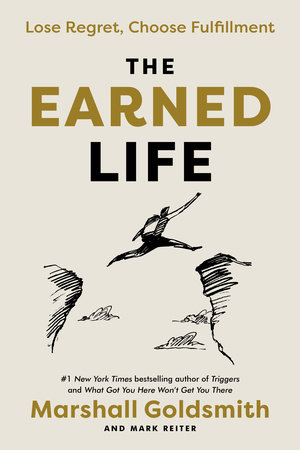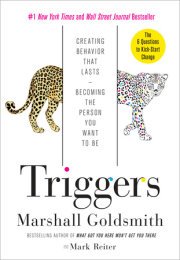Chapter 1
The “Every Breath” Paradigm
When Gautama Buddha said, “Every breath I take is a new me,” he wasn’t speaking metaphorically. He meant it literally.
Buddha was teaching that life is a progression of discrete moments of constant reincarnation from a previous you to a present you. At one moment, through your choices and actions, you may experience pleasure, happiness, sadness, or fear. But that specific emotion doesn’t linger. With each breath, it alters, eventually vanishing. It was experienced by a previous you. Whatever you hope will happen in your next breath, or the next day, or the next year will be experienced by a different you, the future you. The only iteration of you that matters is the present you who has just taken a breath.
I start with the assumption that Buddha was right.
That doesn’t mean you have to abandon your articles of spiritual faith or convert to Buddhism. I’m only asking you to consider Buddha’s insight as a new paradigm for thinking about your relationship to the passage of time and living an earned life.
A core pillar of Buddhism is impermanence—the notion that the emotions, thoughts, and material possessions we hold now do not last. They can vanish in an instant—as brief as the time we need to take our next breath. We know this to be empirically true. Our discipline, motivation, our good humor—you name it—they do not last. They fall out of our grasp as suddenly as they appeared.
Nevertheless, we have a hard time accepting impermanence as a rational way to understand our life, that the unity and singleness of our identity and character is an illusion. The Western paradigm, so deeply ingrained since childhood, is an ongoing argument against impermanence. Actually, it is a fairy tale, always with the same ending: And then they lived happily ever after. The Western paradigm is all about endeavoring for something better in the future and believing two things will result: (a) whatever our improvement, we remain essentially the same person we have been (only better), and (b) against all the evidence, this time it will last. It will be a permanent solution to whatever’s gnawing away at our spirit. That makes about as much sense as studying hard for an A in math and thinking it will make you an A student forever, or believing that your personality is fixed and you can never change, or that rising housing prices will never go down.
This is the Great Western Disease of “I’ll be happy when . . .” It is the pervasive mindset whereby we convince ourselves that we’ll be happy when we get that promotion, or drive a Tesla, or finish a slice of pizza, or attain any other badge of our short- or long-term desires. Of course, when the badge is finally in our hands, something comes along that compels us to discount the badge’s value and renew our striving for the next badge. And the next. We want to reach the next level in the organizational hierarchy. We want a Tesla with more range. We order another pizza slice to go. We are living in what Buddha called the realm of the “hungry ghost,” always eating but never satisfied.
This is a frustrating way to live, which is why I’m urging a different way of seeing the world—one that venerates the present moment rather than the moment before or after.
When I explain the Every Breath Paradigm to clients, accustomed as they are to goal setting and high achievement, it takes a while for them to accept the primacy of now over the validating pleasures of remembering past successes or the future-facing buzz of pursuing an ambitious goal. Being forward-looking is second nature to them, as is looking backward to take pride in their track record. The present moment, astonishingly, is almost a secondary thought.
Gradually I chip away at their attitude. When clients beat themselves up over a blunder, recent or ancient, I say “Stop” and ask them to repeat the following: “That was a previous me. The present me didn’t make that blunder. So why am I torturing myself for some past error that the present version of me didn’t commit?” Then I have them make the universal hand gesture for shaking off a problem and repeat after me: “Let it go.” Silly as this routine may sound, it works. Clients not only begin to see the futility of belaboring the past, but they also embrace the psychically soothing notion that the blunder was committed by someone else—a previous self. They can forgive that previous self and move on. In my initial meetings with clients, I may employ this routine a half dozen times in a one-hour conversation. But eventually they get it—usually at a critical or fraught moment when they finally appreciate that the Every Breath Paradigm has utility in their daily life, not just in their career.
Ten years ago I began coaching an executive in his early forties who had been tapped to be the next CEO of a media company. Let’s call him Mike. His natural leadership skills set him apart from the standard C-suite issue of smart, motivated, underpromise-and-overdeliver types. But he had some rough edges that needed smoothing, which is where I came in.
Mike was a charmer when it served his interests, but he could be insensitive and dismissive to people less useful to him. He was super-persuasive, but sometimes aggressive when people didn’t immediately concede he was right and they were wrong. He was also visibly too pleased with his success, which bathed him in an annoying scent of entitlement. He was special and never let people forget it.
Insensitive, rarely wrong, and entitled. These weren’t career-killing flaws, just issues that came up in my 360-degree reviews with his colleagues and direct reports, which I shared with him. He accepted the criticism with grace, and in less than two years (through a process that is the essence of one-on-one coaching) changed his behavior to his own satisfaction and, more important, in the opinion of his peers. (You need to change a lot to get people to notice even a little.) We remained friends after he became CEO, talking at least once a month about his job and, increasingly, about his family life. He and his wife—college sweethearts—had four grown kids, all out of the house and on their own. The marriage was solid after years of tension when Mike was focused on his career while his wife, Sherry, raised the kids and built up a seemingly unshakable resentment of Mike’s self-absorption and insensitivity.
“Is Sherry wrong?” I asked, pointing out that if he had been perceived as insensitive and entitled at work, he probably was the same at home.
“But I’ve changed,” he said. “She’s even admitted it. And we’re much happier. Why won’t she let it go?”
I explained the Every Breath Paradigm to him, stressing how hard it was for Westerners to conceive that we are not a unitary mass of flesh and bone and emotions and memories but rather a steadily expanding multitude of individuals, each one time-stamped in the moment of our most recent breath—and reborn with every breath.
I told Mike, “When your wife thinks about her marriage, she can’t separate the previous Mike from the man who is her husband today. They’re one character to her, a permanent persona. It’s how we all think if we’re not careful.”
Mike struggled with the concept. It would come up from time to time in our talks, but he couldn’t think of himself as a running series of many Mikes, a new one nearly eight million times a year (the estimated number of breaths we take annually). It collided with his fixed self-image of the impressive, successful Mike that he projected to the world. I couldn’t fault him for that. I was offering him a new paradigm, not a casual suggestion. We achieve understanding at our own pace.
We still talk regularly and he’s still a CEO. But in the summer of 2019 he called me out of the blue, excitedly announcing, “I got it!” I had no idea what he was talking about, but it soon became clear the “it” was about our Every Breath talks. He described a conversation he’d had the day before with Sherry. They were driving back from a Fourth of July reunion at their weekend home with the kids and their partners and friends. It was a crowded but joyous weekend, and Mike and Sherry were reliving the high points on the two-hour drive, pleased at how the children turned out, how engaging and helpful their friends were, how the kids did most of the cooking and cleaning up. Basically, they were congratulating themselves on their good fortune and their successful parenting. Then Sherry threw a wet blanket on their reverie.
“I just wish you had contributed more when they were growing up,” she said. “I was so alone most of the time.”
“I wasn’t hurt by her words, or angry,” Mike told me. “I turned to her and very calmly said. ‘You’re right about that guy ten years ago. He was clueless about many things. But that’s not the guy in this car right now. He’s a better man now. Tomorrow he’s going to be someone else trying to be a little better. Another thing—that woman who suffered back then is not the same woman today. You’re faulting me for the actions of someone who doesn’t exist anymore. It’s not right.’ ”
The car was silent for a long ten seconds. Then Sherry apologized, adding, “You’re right. I have to work on that.”
Copyright © 2022 by Marshall Goldsmith. All rights reserved. No part of this excerpt may be reproduced or reprinted without permission in writing from the publisher.







